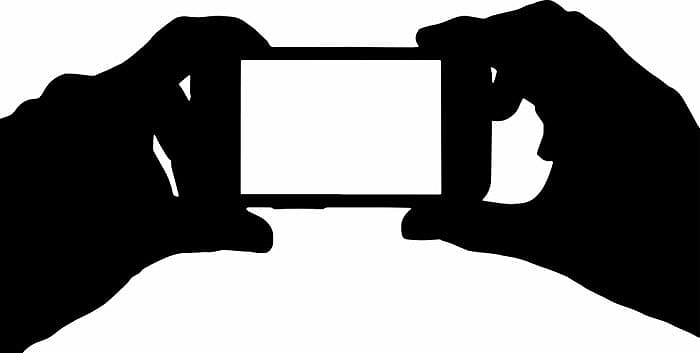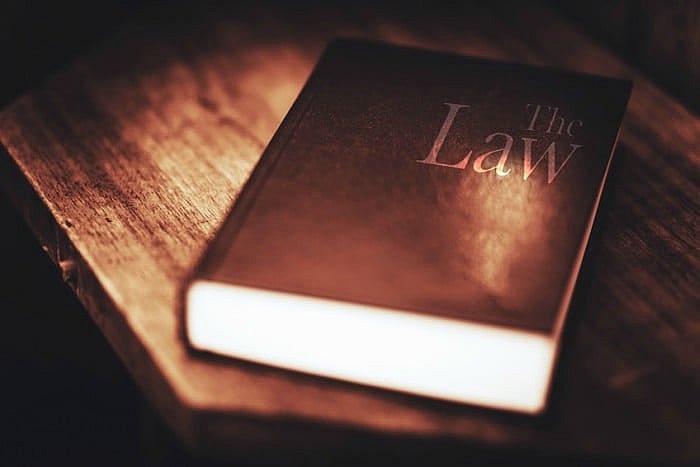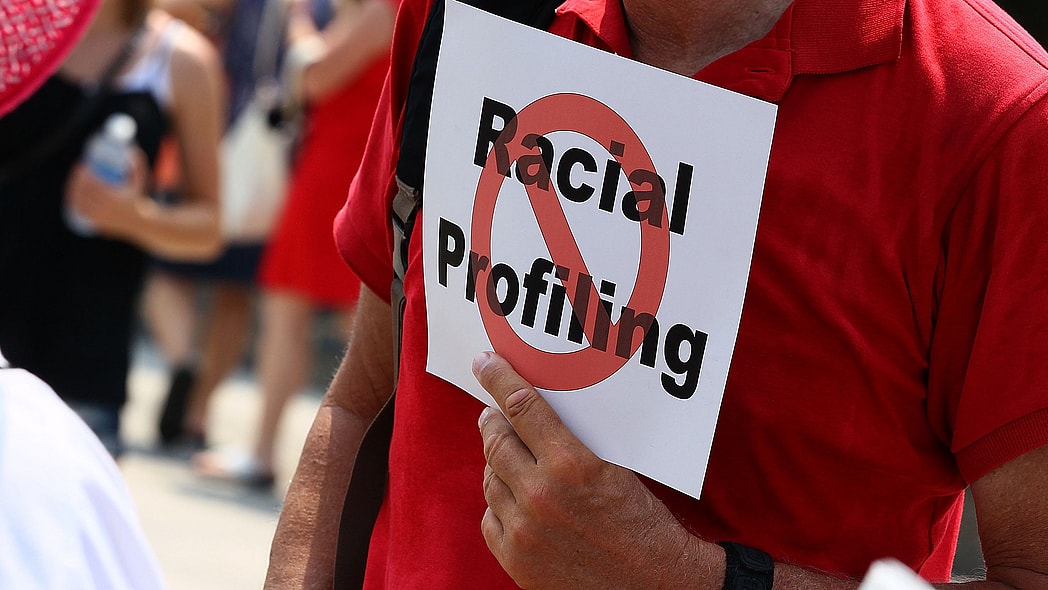Imagine you’re minding your business at the gym, working out to get fit for the summer, when suddenly a manager comes up to you and says, “You have to leave”.
You ask him why. He says it’s because he suspects you snuck in and don’t have a membership. You assure him that not only do you most definitely have a membership, but you’ve been working out at the same location for eight years.
He responds by calling the police.
And the next thing you know, you’re grappling with feelings of shame, confusion and anger as you and your workout buddy get escorted off the premises of a club you pay $30 a month to attend just like everyone else who is in there trying to stay fit and maintain their sexy.
The only glaring difference being you and them is that they’re white and you, very decidedly are not.
This is exactly what happened to Tshyrad Oates a few days ago during an innocent visit to an L.A fitness in Secaucus, New Jersey, and every day when we scroll through our timelines we see more of these stories popping up.
They’re like daily soap operas where the person with the tan skin is always painted as the villain and people in the comments section say dismissive things like, “Well they must’ve been disrespectful or done something to deserve that,” even when the racially biased actions of those in power are clear as day.
Sometimes these viral videos end up in boycotts, sometimes they don’t, but one thing we seldom talk about is: the aftermath.
READ MORE: Outrage after Black teen sentenced to 65 years in prison after Alabama cop kills his best friend
What does life look like on the other side of an incident involving racial profiling? How do we piece ourselves back together again when racism stops being a topic of debate and suddenly becomes a weapon to crash down on our heads in the most personal and invasive way possible?
Here are five ways to handle the aftershock in the best ways possible.
Document what happened

We all know that when it comes to injustice, particularly in cases where allegations of racial bias are being made, it can quickly become a game of he-said/she said.
People lie, but raw footage doesn’t.
Whenever possible, film whatever you’re going through and how you are being violated. And, if that’s not a safe option, try to record it as an audio file on your phone.
This serves the dual purpose of providing you something substantial to present if you ever decide to seek justice, and also allows you to objectively play black the incident after itwards.
A lot of times in traumatic situations where we feel unfairly attacked, we black out. Everything feels like it’s happening either really fast or in slow motion. We shut down emotionally and go into survival mode. For some survival mode manifests as being completely still in hopes the situation doesn’t escalate, for others it involves a vocal burst of rage.
READ MORE: Atlanta Mayor Keisha Lance Bottoms launches groundbreaking prison job training program “This is a career pathway”
Regardless of which side of that coin you fall on – there’s a lot of valuable insight (and healing) that can take place when you are able to objectively watch the situation play out on video, after the fact.
For those who are prone to internalizing shame this can be especially helpful in showing you that what happened to you really was wrong and you have nothing to be ashamed about.
Seek legal council

It pays to know your rights. But because racist violations can literally pop up anywhere and for the most trivial reasons, it can sometimes be tricky figuring out where the law falls in your situation.
Whenever possible, seek legal council and get a trained professional to look over your case to help you map out the most intelligent way to get the restitution you deserve.
If you are in a financial bind, tell your story online and put out some feelers out there to see if anyone knows a lawyer who is willing to give you advice pro bono. Increased social media visibility has already proven to be a great way for people with limited resources to get the help they otherwise couldn’t afford.
It’s also extremely cathartic to empower yourself in this way and have a say in how your narrative is shaped.
Cry it out

Never underestimate the power of a good cleansing cry.
Trauma is a shock to the system and once that shock wears off, don’t be surprised if you suddenly find yourself overcome by a wave of conflicting emotions.
Recently when Rashon Nelson and Donte Robinson appeared on Good Morning America to talk about their unlawful arrest at a Starbucks in Philadelphia, it was pretty evident from the looks on those young men’s faces that they had shed more than a few tears over the last week of public scrutiny.
FULL INTERVIEW: "This is something that has been going on for years…everyone is blind to it."
Rashon Nelson & Donte Robinson, the 2 black men arrested at a Starbucks in Philadelphia, speak out exclusively to @RobinRoberts: https://t.co/bIBmMGlwWN pic.twitter.com/IZekmHrWw2
— Good Morning America (@GMA) April 19, 2018
Gone are the days when crying is seen as a sign of weakness. In fact several celebrities in the Black community have started speaking out about the value in being honest about your emotions.
Everyone is allowed to cry – yes even men.
Those tears are meant to purge what ails you, so give yourself permission to finish falling to pieces before taking on the task of putting yourself back together again.
Find friends you trust, and vent about whatever it is you are feeling or grappling with about how you were violated. Keep a journal. And as always, whenever possible, ask yourself if it makes sense to reach out to a mental health profession to get further guidance.
Take time off to process

A lot of times when bad things happen to us we go into a state of denial and then find ourselves rushing to get back to our regular lives. This is sometimes done as an attempt to get “back to normal” and pretend like the incident we faced never even happened.
Unfortunately trauma doesn’t work like that.
Depending on how ugly your racial profiling situation was, it probably makes sense to take a few days off to clear your head and find your footing again.
READ MORE: VIDEO: Black police commissioner supports cops after arrest of Black men at Starbucks
And when you contact your job, please don’t mince words. Tell them exactly why you need the time off for your mental recovery.
Who knows, if Black people start a trend of calling out sick due to “deeply traumatic racist attacks,” perhaps organizations may actually start being more mindful of the way they treat employees of color (a girl can dream can’t she?).
Even if you don’t go into explicit detail about your issue, the added bonus of being transparent is that your employer may also cut you a bit of slack when you return.
If, however, you work somewhere horrible where no one cares about anything or anyone and everyone’s treated like robot, then just say you need a personal day and keep it moving.
Just know one thing – a time out is a necessity.
Nobody wants to deal with you randomly bursting into tears during a staff meeting because you rushed back to work too soon.
Become part of the solution

A wise man (likely woman) once said, “When you can’t take it anymore – give!”
I’m not sure which wise person this was because it has appeared on a million memes over the years, but the advice is still pretty solid.
Once you’ve figured out what kind of legal action you want to take, cried out all your frustrations and taken a moment to regroup, for many the logical next step is to do your part to make sure the next person doesn’t have to go through what you did.
Instead of getting stuck in a mindset where you’re dwelling on the problem, why not actively become part of the solution.
If it was a store or other public venue that violated your rights, galvanize the troops and make sure that their employees know better than to treat another customer that way. If it’s a police officer or other civil servant who treats you in a manner that undermines the oath that they took, hit up your local politicians and demand some answers.
Even if the issue occurred with a stranger who you can’t identify and may never even see again, I suggest that you write about it!
READ MORE: Outrage at Harvard after naked student brutally beaten by police officers
You have no idea who you could be helping by speaking up about your story.
Take that valid rage and sadness you feel and find a healthy way to channel it into making your piece of the world a better place. The sobering fact is, you aren’t the first person whose ever been profiled and unfortunately, you probably won’t be the last.
Follow writer Blue Telusma on Instagram at @bluecentric


